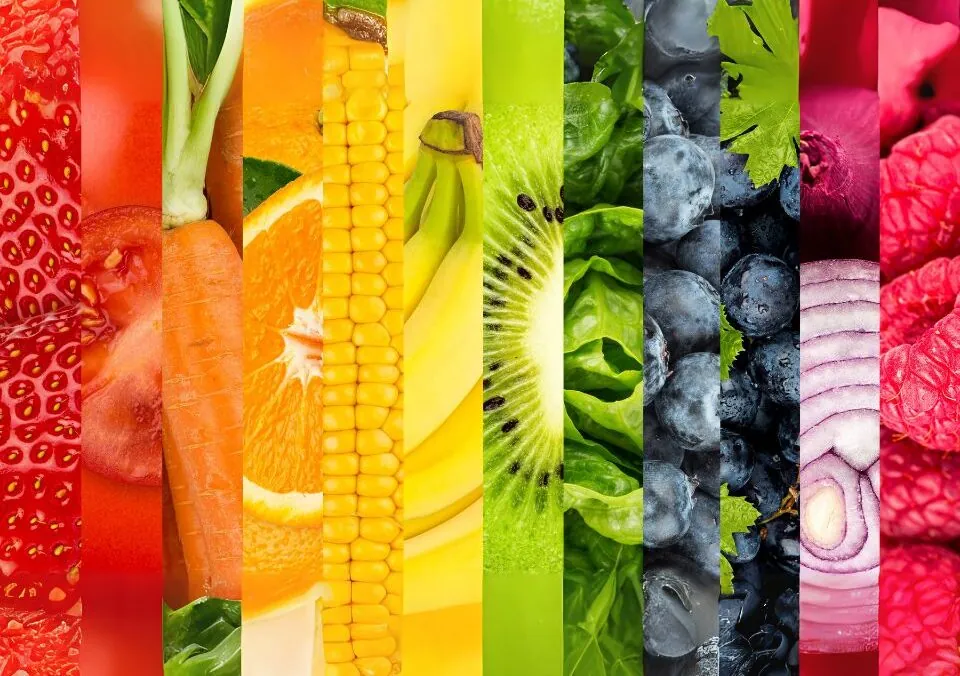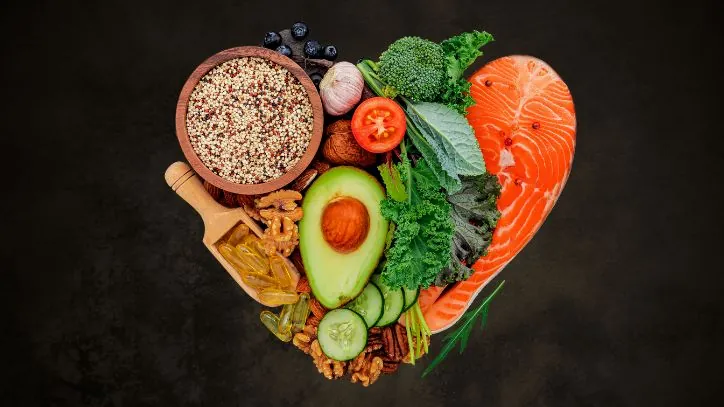Blog
The “Food as Medicine” Trend in 2025: Promise and Pitfalls

As we move into 2025, the “food as medicine” movement is poised to take center stage in conversations about health and wellness. The idea that what we eat can prevent, manage, or even treat chronic conditions is not new—nutrition has long been a cornerstone of well-being. However, as this trend gains momentum, it’s worth examining both its potential and its pitfalls. While food can indeed be a powerful tool for health, it’s not a panacea, and oversimplifying its role risks leading us down a problematic path.
Registered dietitian nutritionist Carrie Dennett is a leading cautionary proponent of not leaning on food too heavily to make your medical decisions. Her insights serve as a reminder of the complex relationship between diet, health, and medical care.
The Rise of “Food as Medicine”
The appeal of “food as medicine” lies in its simplicity and empowerment. Who wouldn’t want to take charge of their health with every bite? The research backs this empowerment with substantial evidence: diets rich in whole fruits, vegetables, lean proteins, and healthy fats can reduce the risk of heart disease, diabetes, and certain cancers. One clear example is the Mediterranean diet, which emphasizes whole foods such as olive oil, fish, nuts, and an array of fruits and vegetables, demonstrating significant health benefits according to studies published in many health journals.
In Arizona, for example, we’re fortunate to have a vibrant agricultural landscape that supports this approach. The state’s farms produce an abundance of fresh fruits and vegetables—think crisp leafy greens, juicy citrus, and nutrient-packed tomatoes—alongside healthy protein sources like beef and poultry. This local bounty can provide the foundation for a healthier lifestyle, fostering community connections and promoting well-being.
Yet, as this trend accelerates, it’s being co-opted in ways that could undermine its value. The food industry has a knack for turning good intentions into marketing gimmicks. Ultra-processed foods—think sugary cereals, packaged snacks, and ready-to-eat meals—are increasingly being fortified with vitamins, minerals, or trendy superfood powders and marketed as “healthful.” A granola bar laced with added fiber or a soda boasting vitamin C might sound like medicine on paper, but these products often come with a hefty dose of sugar, sodium, and artificial additives.
Nutrient fortification doesn’t erase the downsides of ultra-processing. A study published in the American Journal of Clinical Nutrition highlights that the consumption of processed foods is linked to various health issues, including obesity and metabolic syndrome. Furthermore, slapping a “food as medicine” label on these items risks confusing consumers about what truly nourishes the body.
The Danger of Overreach
One of the most concerning aspects of the “food as medicine” trend is the potential for it to be seen as a replacement for medical care. Dennett has encountered clients who’ve skipped doctor visits or abandoned prescribed treatments, convinced that a kale smoothie or a turmeric supplement could “cure” their ailments. While nutrition plays a critical role in health, it’s not a standalone solution. Conditions like hypertension, autoimmune diseases, or cancer often require a nuanced approach that can only be provided through professional medical diagnosis and treatment.
A one-size-fits-all dietary fix simply doesn’t exist. Nutrition and medicine must work hand in hand, not in opposition. For example, Dennett highlights diabetes management. A balanced diet can help manage blood sugar levels, but without proper monitoring and medication when necessary, relying solely on food could lead to serious complications. The American Diabetes Association emphasizes the importance of a comprehensive diabetes care plan that goes beyond diet to include medication, physical activity, and ongoing medical support.
Similarly, someone with a nutrient deficiency might benefit from targeted dietary changes, but only a medical professional can pinpoint the root cause—whether it’s poor absorption, a genetic factor, or an underlying condition. For instance, studies published in The Journal of Nutrition have shown that certain individuals require specific interventions beyond dietary changes to address deficiencies.
The Role of Mental and Emotional Well-Being
While the conversation around “food as medicine” often focuses on physical health, we must also consider the role of mental and emotional well-being. The relationship between diet and mental health is an emerging area of research, as evidenced by studies showing that a healthy diet can positively influence mood and cognitive function. According to a systematic review in the Journal of Psychosomatic Research, diets high in fruits, vegetables, and omega-3 fatty acids are associated with lower levels of depression and anxiety.
This interplay between food and mood highlights the need for a comprehensive understanding of health that considers physical, mental, and emotional wellness. Food can certainly have a positive impact, but it should not be viewed as a cure-all for mental health issues. Individuals struggling with severe mental health conditions should seek professional help, as diet alone cannot replace therapeutic interventions.
Collaboration Is Key
The real promise of “food as medicine” lies in a collaborative approach, as suggested by Dennett and other nutritionists. Imagine a healthcare system where dietitians, doctors, and other providers team up to create personalized plans that integrate nutrition with medical treatment. This type of teamwork can help bridge the gap between diet and medical care, ensuring that individuals receive a holistic yet scientifically sound approach to their health.
For example, a patient with high cholesterol might benefit from both dietary changes and medication. A registered dietitian could develop a personalized meal plan focusing on heart-healthy foods, while a physician monitors cholesterol levels and prescribes medication as necessary. This collaborative approach not only addresses immediate health concerns but also promotes long-term health benefits.
Moreover, initiatives like the “Food is Medicine” program in California demonstrate how community resources can support this integration. This program connects healthcare providers with local farmers’ markets to provide patients with vouchers for fresh produce, demonstrating a successful model for improving access to nutritious foods while promoting healthy eating patterns.
Moving Forward in 2025: A Balanced Perspective
As we embrace the “food as medicine” trend in 2025, we need to do so with eyes wide open. Arizona’s fruits, vegetables, and healthy proteins are a gift to our plates and our bodies, but they’re only part of the equation. It’s tempting to chase the allure of quick fixes and flashy marketing, but we must recognize the intricacies of health and nutrition.
Education plays a crucial role in this journey. Empowering individuals to discern between genuinely healthful foods and heavily marketed processed products is essential. Governments can support these efforts by implementing policies that promote food literacy, enabling people to make informed choices about their diets.
Furthermore, as the trend matures, scientific research will continue to shed light on the complex relationships between food, health, and disease. Institutions like the National Institutes of Health are funding research into the connections between diet and disease, helping to clarify the role of nutrition in health outcomes.
Final Thoughts
While the “food as medicine” movement offers exciting possibilities for enhancing our health through nutrition, it also presents challenges that must be addressed. Navigating this landscape requires a commitment to understanding the nuanced relationship between food and health, recognizing that nutrition is an essential component of a broader healthcare strategy.
In 2025, let us embrace food as a tool for wellness while remaining vigilant about its limits. Collaboration between healthcare providers and nurturing a culture of informed choices will be essential as we move forward. The ultimate goal is a healthier society that recognizes the intrinsic value of food not just as sustenance, but as a vital part of holistic wellness.
In this dynamic landscape, it is imperative to foster partnerships among nutritionists, medical professionals, and patients, ensuring that the “food as medicine” trend serves its true purpose: enhancing health and quality of life without oversimplifying the intricacies of medical care. Through balanced approaches and informed decision-making, we can truly harness the power of food in our pursuit of better health outcomes.

The “food as medicine” movement offers tremendous potential to revolutionize how we approach health and wellness, emphasizing the importance of nutrition in preventing and managing chronic conditions. Yet, as Carrie Dennett and other experts warn, we must tread carefully to avoid the pitfalls associated with oversimplifying this complex relationship.
As we embrace the diversity of our local agricultural bounty, let us do so with the understanding that true health is not solely found on our plates. It emanates from a collaborative relationship between informed medical practice and the nourishment that food can provide. Together, as we build a healthcare landscape grounded in science and supported by nourishing food choices, we can forge a path towards a healthier future for all.
At Fill Your Plate, we’re also trying to help with this effort through our recently released podcast, “Fill Your Plate Now,” where we bring in the nutritionists, farmers and other experts to understand our nutritional opportunities and celebrate tasty, healthy food.
By Julie Murphree, Arizona Farm Bureau Director of Strategic Communications


















